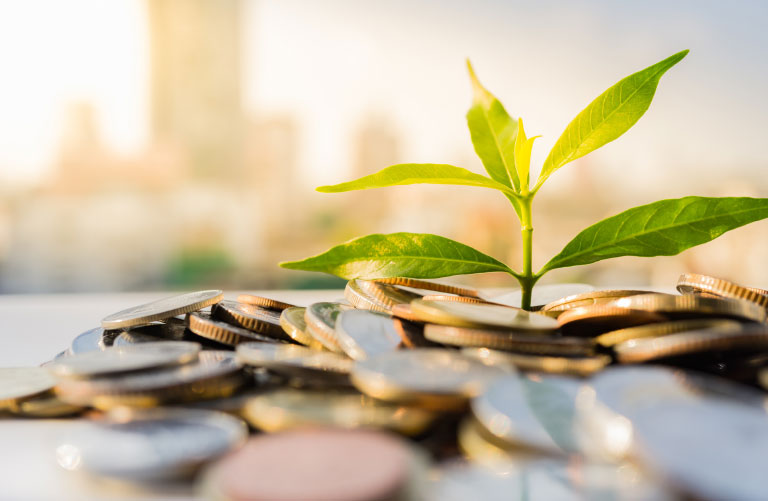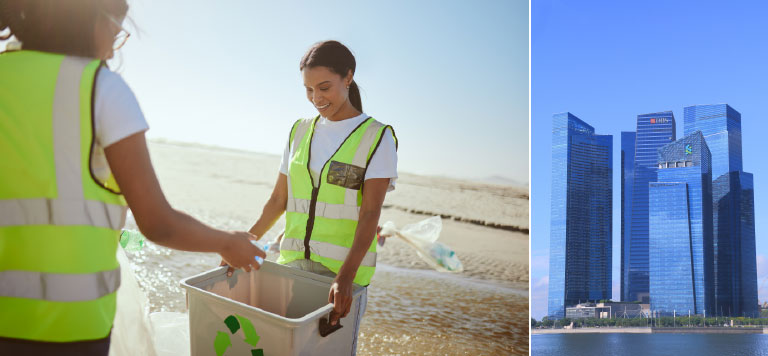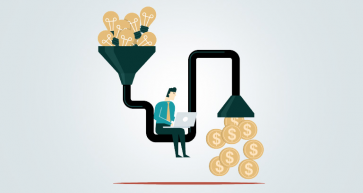
In her two articles published in Woman This Month, Chartered Manager Eman Deabil (DipESG, PfMP, IPMO-P, SIP) spoke about the rise of sustainability and ESG, and how these topics became the talk of the town. She also spoke about the evolving role of the Chief Sustainability Officer (CSO). In this article, she sheds light on green practices in the banking industry.
Green Banking or Sustainable Banking
The practices adopted by banking institutions to promote environmentally friendly and socially responsible initiatives. This involves integrating these practices into the conventional core banking activities, such as lending, investment, credit and risk management, to make it greener or more sustainable, and hence to create a positive long-term impact.
 Sustainability is the need of the hour, there’s no doubt about it. What most individuals do not realise is that sustainability practices can go well beyond one’s home and be implemented at large organisations too.
Sustainability is the need of the hour, there’s no doubt about it. What most individuals do not realise is that sustainability practices can go well beyond one’s home and be implemented at large organisations too.
Here are nine steps which organisations can take to move towards green banking:
Promote green investments: Encourage and prioritise investments in sustainable products, renewable energy, sustainable infrastructure, and environmentally friendly projects. This helps drive sustainable development and reduces carbon emissions.
Implement responsible lending practices: Assess the environmental impact of potential borrowers by checking their published ESG/Sustainability reports and scores granted to them by rating agencies (e.g., Sustainalytics, Refinitiv), provide preferential rates or incentives to the ones have high ESG scores or engaged in sustainable practices.
Reduce paper usage: Streamline processes, re-engineer the processes and promote digital documentation and automated workflows. Organisations are encouraged to opt for electronic statements, digital signatures and online transactions without jeopardising the security of private information.
Promote energy efficiency: Implement energy-saving measures in bank facilities, such as optimising heating and cooling systems, using energy-efficient lighting, and encouraging employees to power off electronic devices if not in use.
Establish employee eco-consciousness:
Promote sustainable practices among employees, such as reducing waste, recycling, optimising existing resources, using energy-efficient equipment, offering car-pooling if possible, and allowing them to work-from-home to reduce their carbon footprint when commuting.
Foster green partnerships: Collaborate with other banks, financial institutions and organisations that prioritise sustainability practices.
Opt for sustainable procurement: Support sustainable suppliers by acquiring goods and services in a manner that considers environmental and social factors; this might involve evaluating the entire product lifecycle from sourcing to disposal.
Engage in corporate social responsibility:
Participate in community initiatives that focus on sustainability, such as tree-planting, beach clean-ups, educational programmes, care programmes for the elderly and support programmes for orphans.
Promote better governance: Provide transparent reporting on the bank’s sustainability efforts, maintain independence, and promote diversity and inclusion, ensure data privacy, establish stringent internal controls and encourage whistleblowing on wrongdoings. This helps build trust with stakeholders.
 DBS Bank, headquartered in Singapore, was named the World’s Best Bank 2022 by Global Finance, and the World’s Best Bank 2023 for Corporate Responsibility by Euromoney. Here are a few interesting examples on the green practices incorporated by the bank:
DBS Bank, headquartered in Singapore, was named the World’s Best Bank 2022 by Global Finance, and the World’s Best Bank 2023 for Corporate Responsibility by Euromoney. Here are a few interesting examples on the green practices incorporated by the bank:
DBS Home and Living Marketplace: This product was developed in collaboration with Singapore Green Building Council (SGBC). If the customer wants to renovate his/her home by using sustainable infrastructure and appliances, the customer is entitled to enjoy more savings since the requirements of the green renovation checklist are being fulfilled. It also enables the customer to install green energy infrastructure such as solar panels by applying for the green renovation loan.
DBS Live Fresh Card: This ecofriendly credit card is made from 85.5 percent recycled plastic – and gives the holder an additional five percent Green Cashback on selected eco-eateries, retailers and transport services. The holder can buy green labelled products and enjoy discounts on the orders made with DBS card. This will contribute to reducing food waste.
Go Green, On the Go: DBS customers can cut down carbon emissions by choosing cleaner types of transport, they can select car-sharing via the partnered vehicle car sharing platform, and the first-month subscription fees will be waived.
To conclude, sustainability is an ongoing journey; seeking opportunities to improve banking practices will certainly have a positive impact on the environment and society. There are numerous ideas that could be embraced, thinking wholly and holistically by engaging different partners could help in defining more innovative ideas. We are all responsible for creating a better and a brighter world for the future generations.



